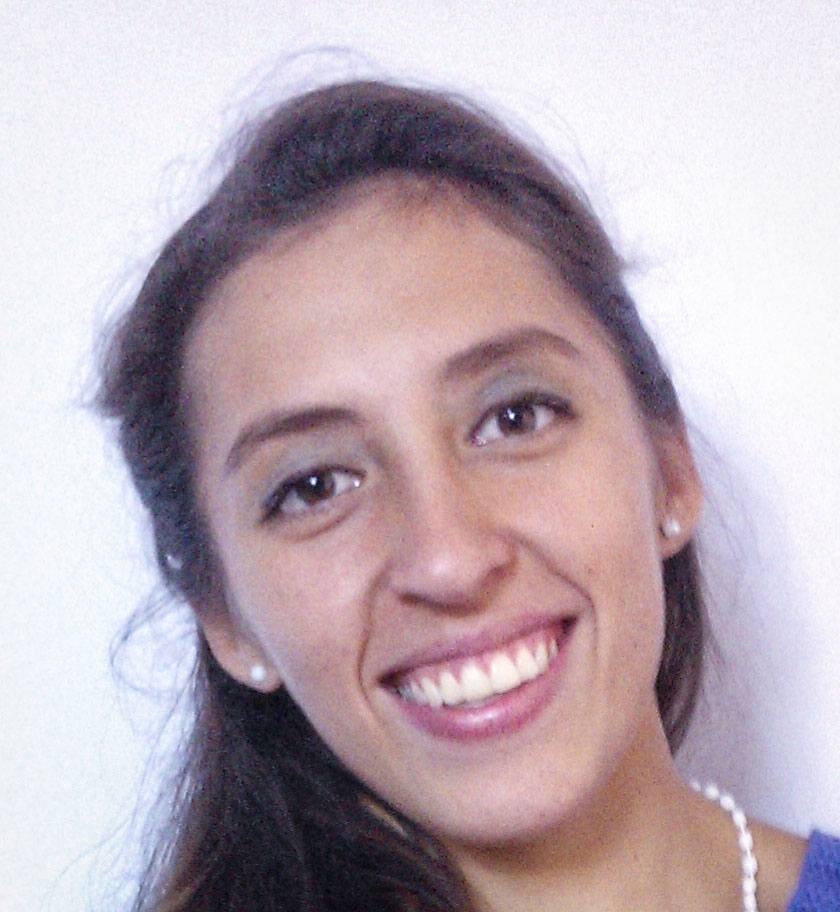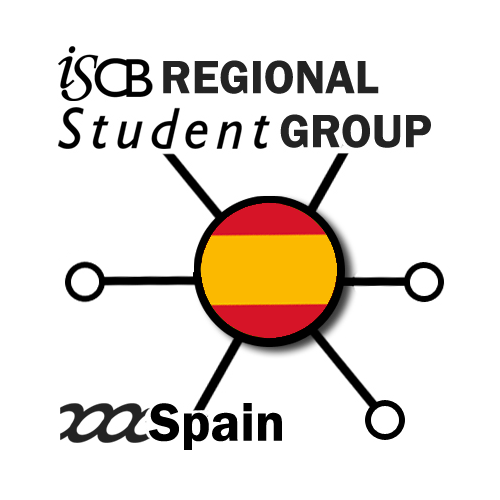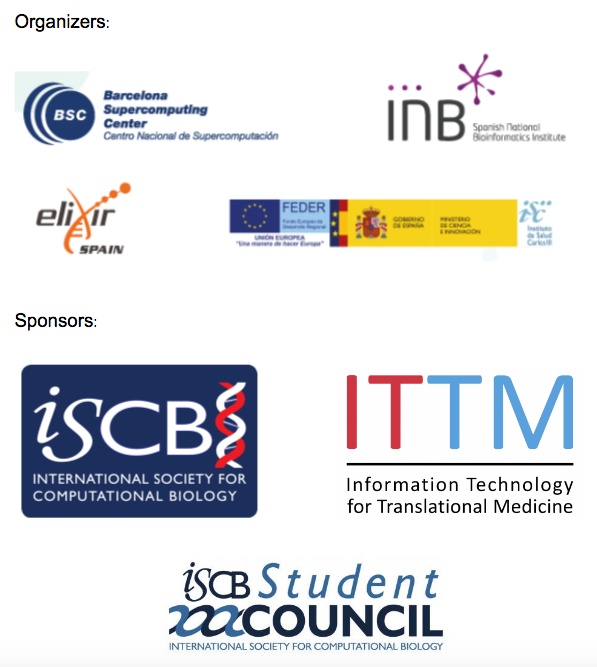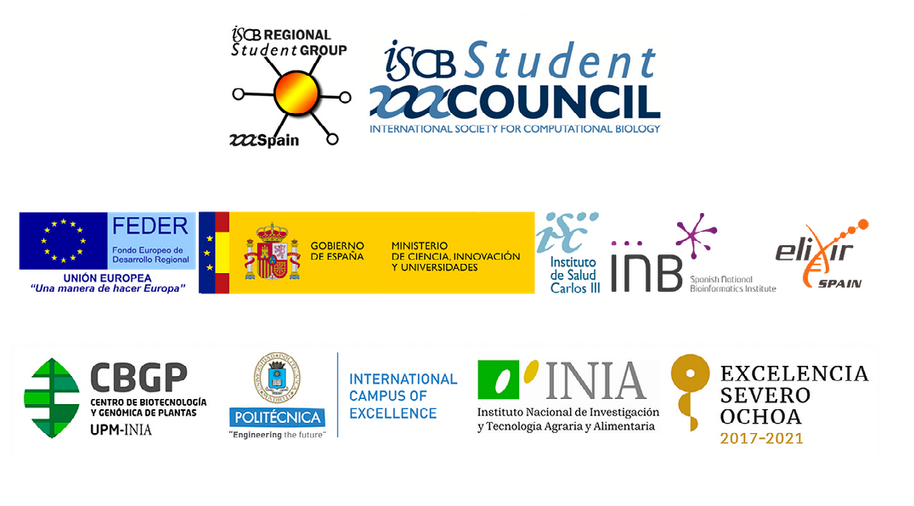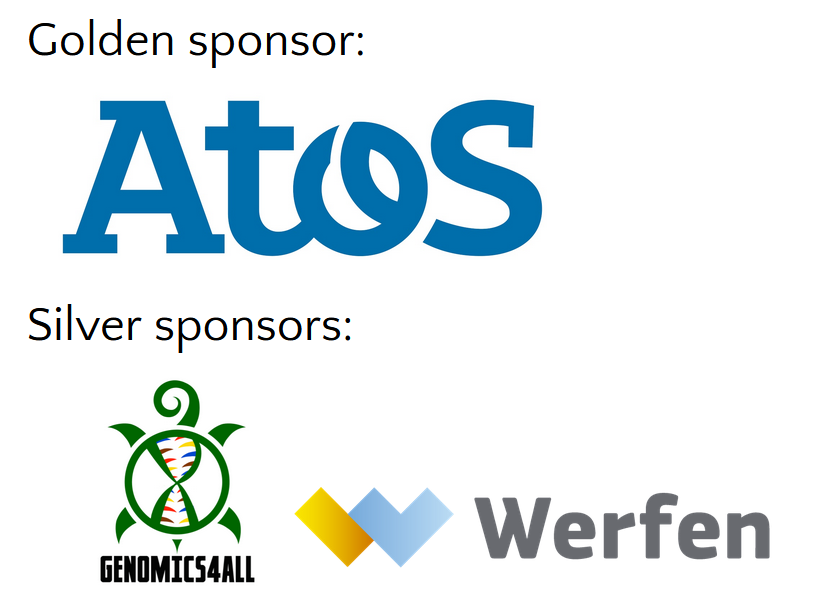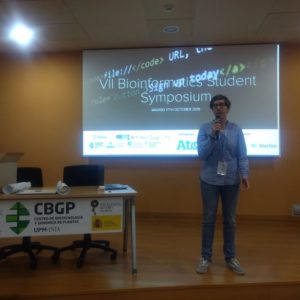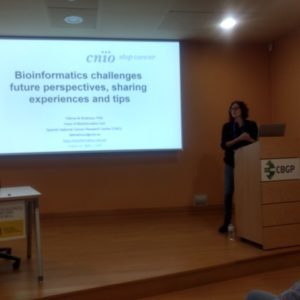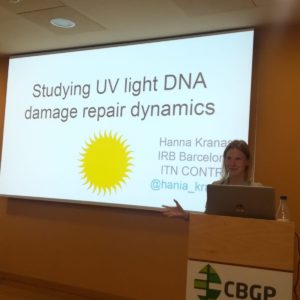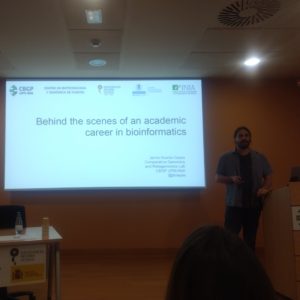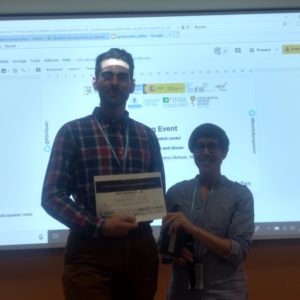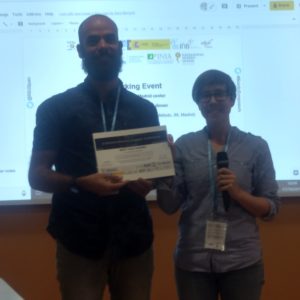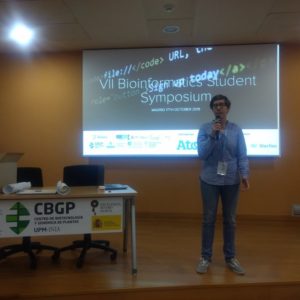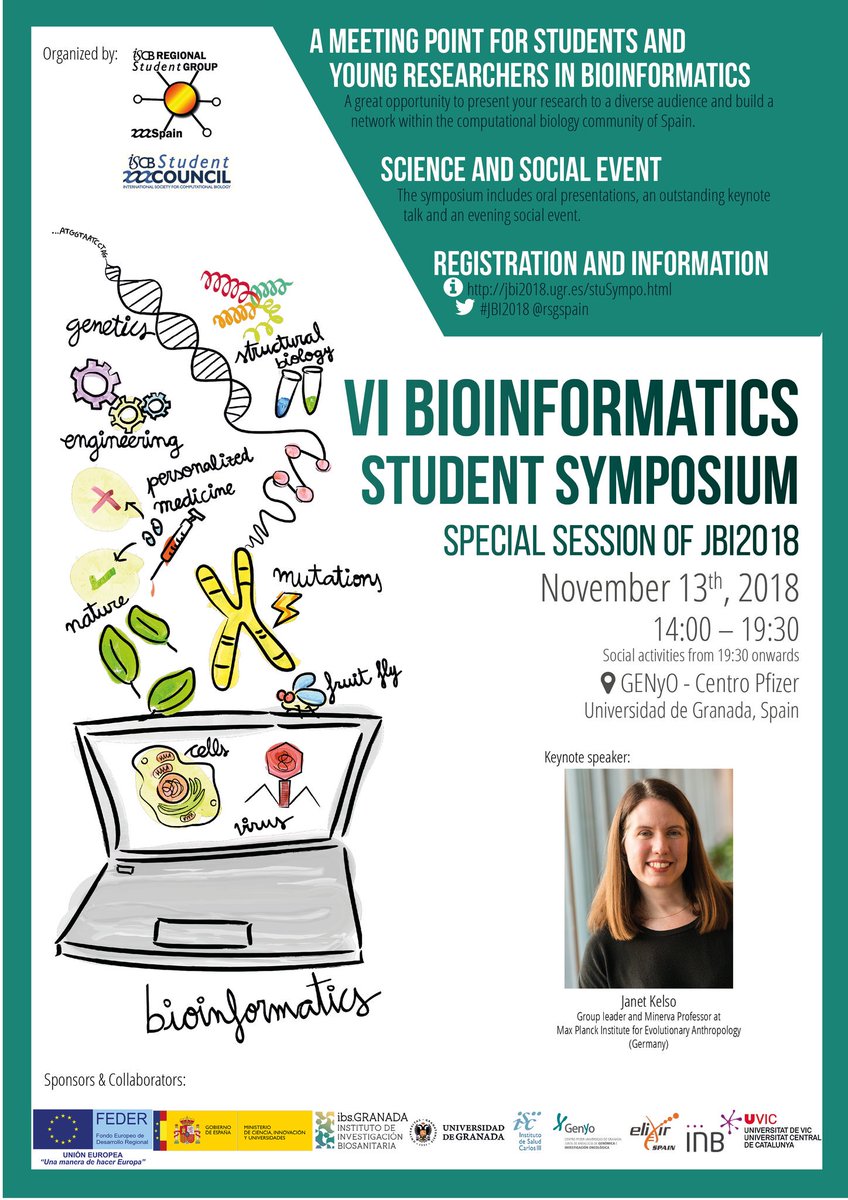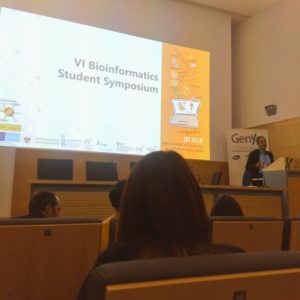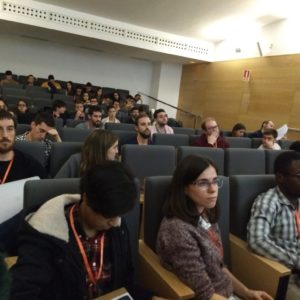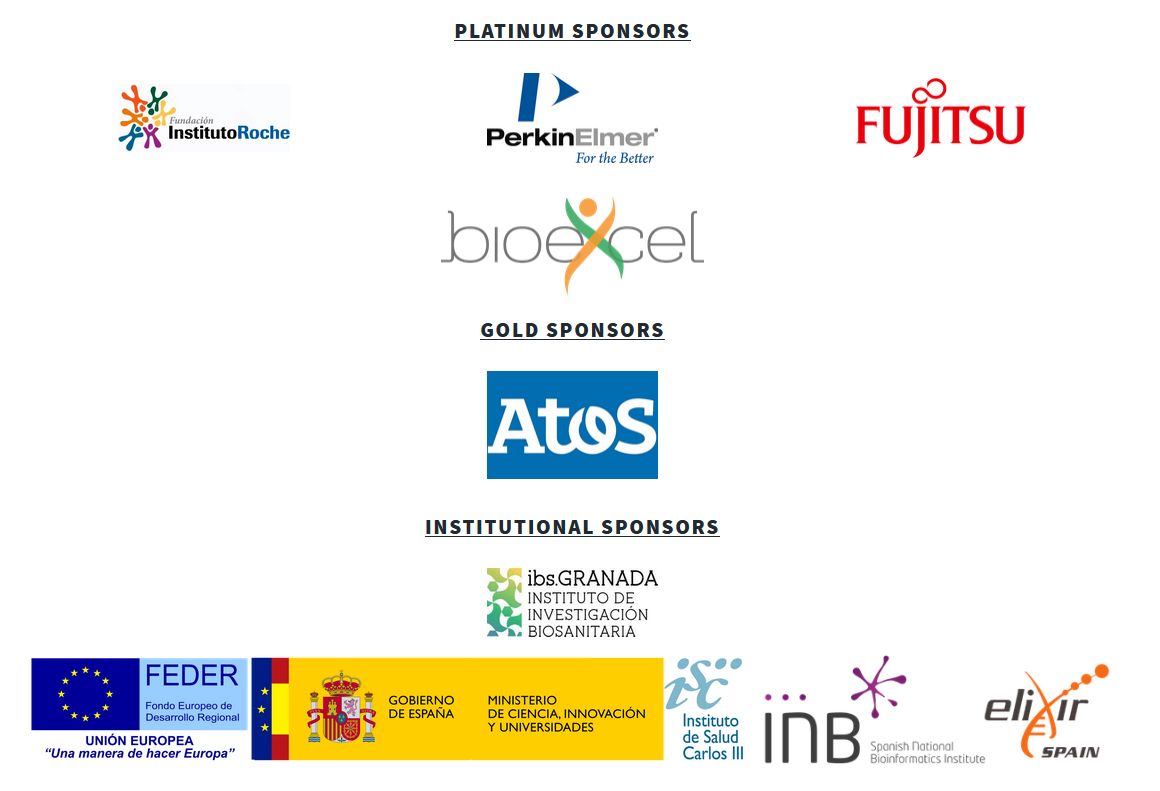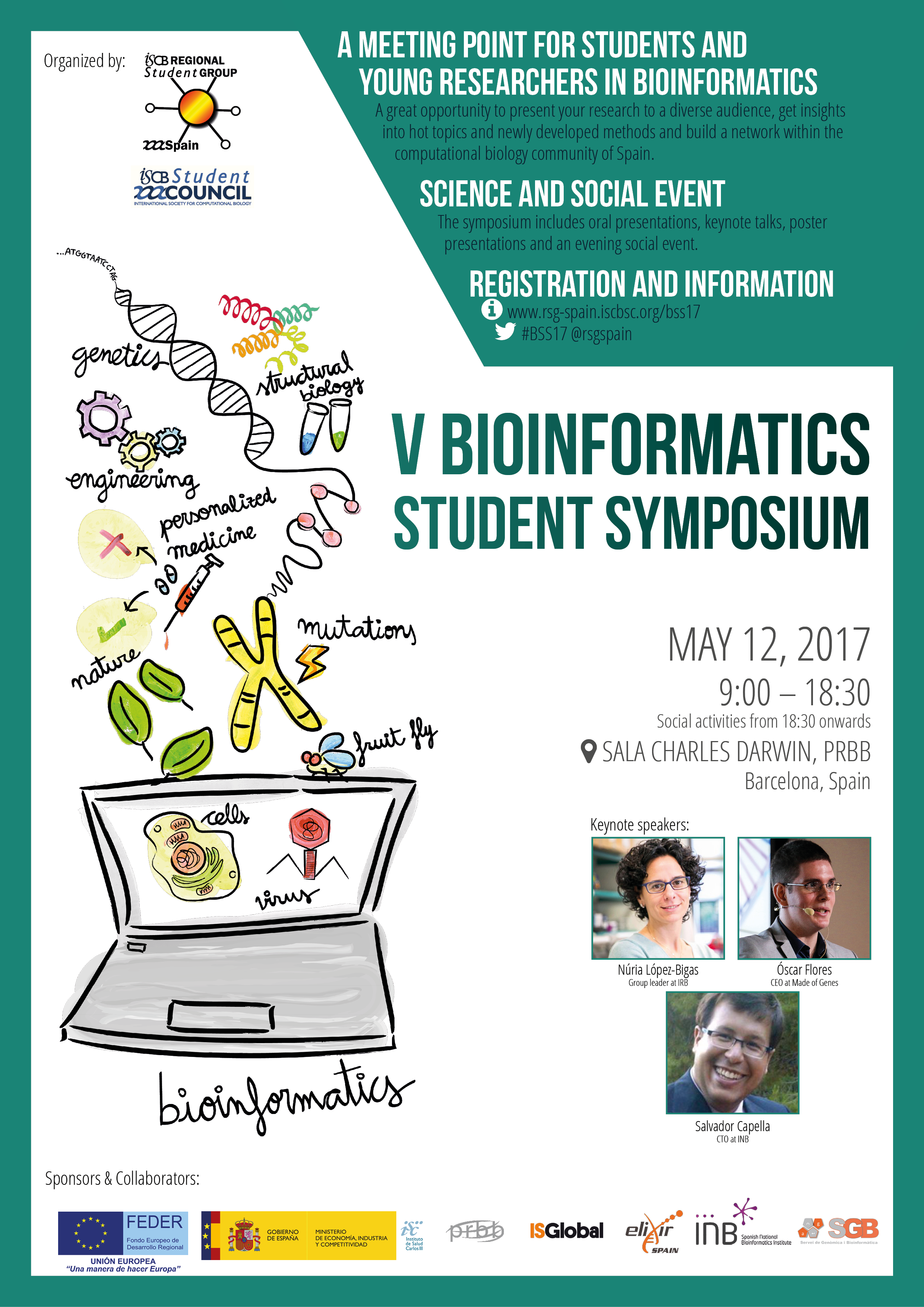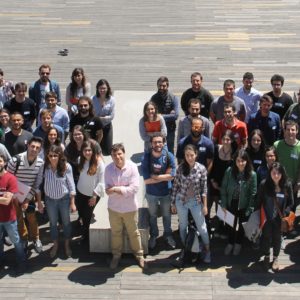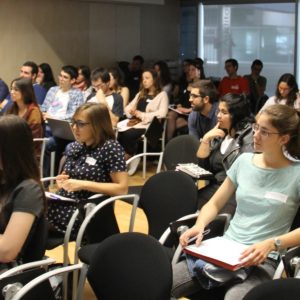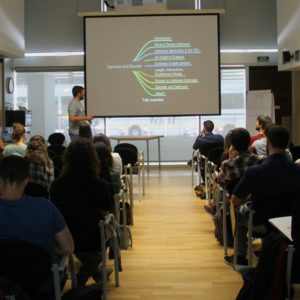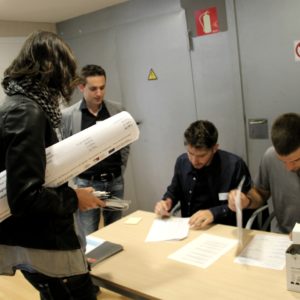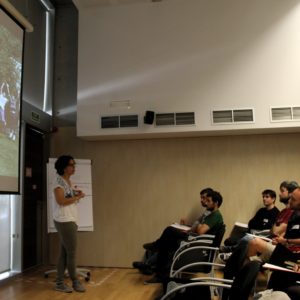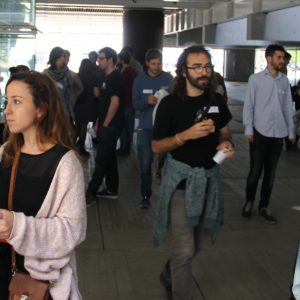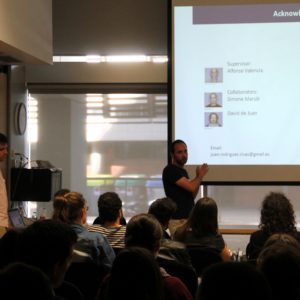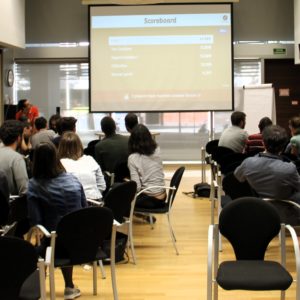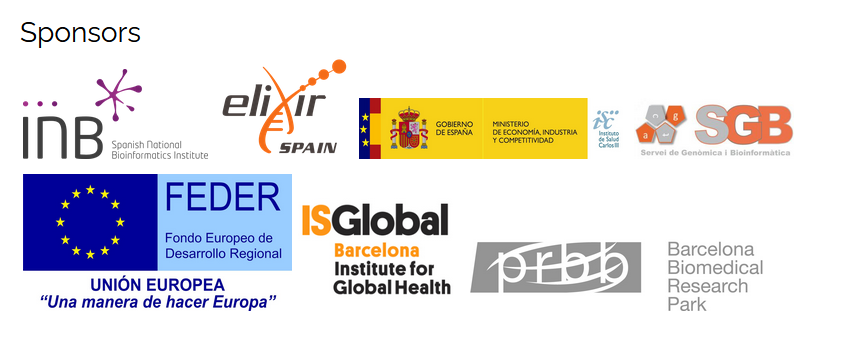VIII Bioinformatics Student Symposium
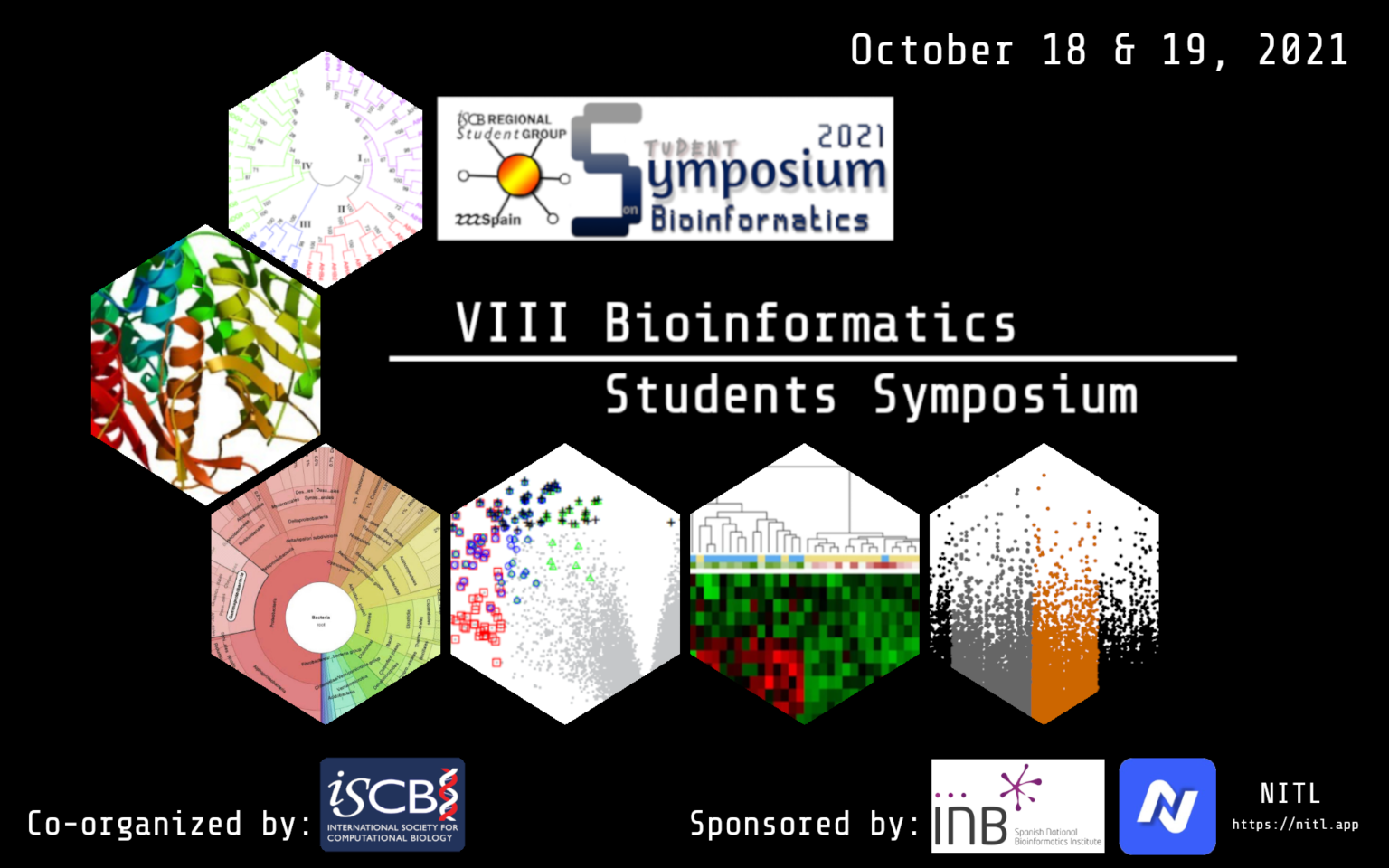
Organizers

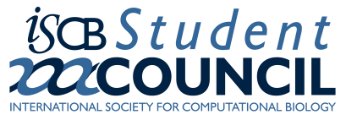
- Online
- 18-19 October 2021
The VIII Bioinformatics Student Symposium is organized by RSG-Spain, an association of junior scientists in Bioinformatics based in Spain and satellite group of the International Society for Computational Biology (ISCB), the largest scholar society in bioinformatics. Currently, RSG-Spain has six active local nodes in Madrid, Barcelona, Canarias, Granada, Euskadi and Cordoba.
Like in previous editions, this Symposium will include a day for research communications presented by students and a special career advice talk by senior scientists. As a novelty, the previous day will consist of a Meet&Greet with different relaxed activities. The event seeks to foster debate and collaborations among our network, also promoting RSG-Spain, the ISCB and the Student Council. In particular, the VII Student Symposium on Bioinformatics will be a great opportunity for RSG Spain members to meet together as our association has greatly grown in recent times and it spreads across several cities in the country.
The target audience includes undergraduates, master students, PhD students and postdocs working on the field of Bioinformatics in Spain.
Co-organized by:
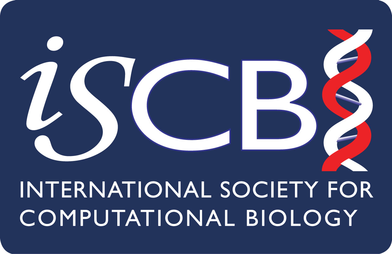
Sponsored by:
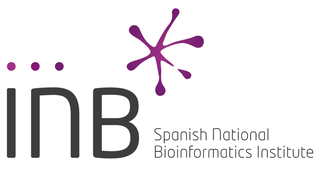

The meeting has already taken place! Thank you all for attending
The program at a glance:
| 18th October 2021 | 19th October 2021 | |
|---|---|---|
| 10:00 am |
Presentation of RSG and RSG-Nodes. Encouraging the creation of new nodes |
Registration, online network gathering Keynote speaker: Arcadi Navarro - "For more and Better Science. Big and Small Data Governance, Management & Sharing" |
| 10:15 am | ||
| 10:30 am | ||
| 10:45 am | ||
| 11:00 am |
Live survey: getting to know young spanish BioInfos topics and practices |
Women in Science: Nataly Buslón - "Sex and gender perspective in research" |
| 11:15 am | ||
| 11:30 am |
Break, online network gathering |
|
| 11:45 am |
Lightning talks for selected abstract as a poster |
|
| 12:00 pm |
Round table with RSG-Spain representatives (bioinfo trends discussion and Q&A) |
Selected talks from students on bioinformatics |
| 12:15 pm | ||
| 12:30 pm | ||
| 12:45 pm | ||
| 1:00 pm |
Lunch |
|
| 1:15 pm | ||
| 1:30 pm |
Abroad RSG Leader talk: Carla Padilla Franzotti (RSG-Argentina) |
|
| 1:45 pm | ||
| 2:00 pm |
Selected talks from students on bioinformatics |
|
| 2:15 pm | ||
| 2:30 pm |
Social gathering in AirMeet or Remo rooms. Tables divided by topics |
|
| 2:45 pm | ||
| 3:00 pm | ||
| 3:15 pm | ||
| 3:30 pm |
Break |
|
| 3:45 pm | ||
| 4:00 pm |
Keynote speaker: Laura Furlong - “From bench to in silico, and from academia to entrepreneurship" |
|
| 4:15 pm | ||
| 4:30 pm | ||
| 4:45 pm | ||
| 5:00 pm |
Best communication prizes. Conclusions and wrap-up |
|
| 5:15 pm | ||
| 5:30 pm | ||
| 5:45 pm |
| 18th October 2021 | 19th October 2021 | |
|---|---|---|
| 10:00 am |
Presentation of RSG and RSG-Nodes. Encouraging the creation of new nodes |
Registration, online network gathering Keynote speaker: Arcadi Navarro - "For more and Better Science. Big and Small Data Governance, Management & Sharing" |
| 10:15 am | ||
| 10:30 am | ||
| 10:45 am | ||
| 11:00 am |
Live survey: getting to know young spanish BioInfos topics and practices |
Women in Science: Nataly Buslón - "Sex and gender perspective in research" |
| 11:15 am | ||
| 11:30 am |
Break, online network gathering |
|
| 11:45 am |
Lightning talks for selected abstract as a poster |
|
| 12:00 pm |
Round table with RSG-Spain representatives (bioinfo trends discussion and Q&A) |
Selected talks from students on bioinformatics |
| 12:15 pm | ||
| 12:30 pm | ||
| 12:45 pm | ||
| 1:00 pm |
Lunch |
|
| 1:15 pm | ||
| 1:30 pm |
Abroad RSG Leader talk: Carla Padilla Franzotti (RSG-Argentina) |
|
| 1:45 pm | ||
| 2:00 pm |
Selected talks from students on bioinformatics |
|
| 2:15 pm | ||
| 2:30 pm |
Social gathering in AirMeet or Remo rooms. Tables divided by topics |
|
| 2:45 pm | ||
| 3:00 pm | ||
| 3:15 pm | ||
| 3:30 pm |
Break |
|
| 3:45 pm | ||
| 4:00 pm |
Keynote speaker: Laura Furlong - “From bench to in silico, and from academia to entrepreneurship" |
|
| 4:15 pm | ||
| 4:30 pm | ||
| 4:45 pm | ||
| 5:00 pm |
Best communication prizes. Conclusions and wrap-up |
|
| 5:15 pm | ||
| 5:30 pm | ||
| 5:45 pm |
Meet the keynote speakers
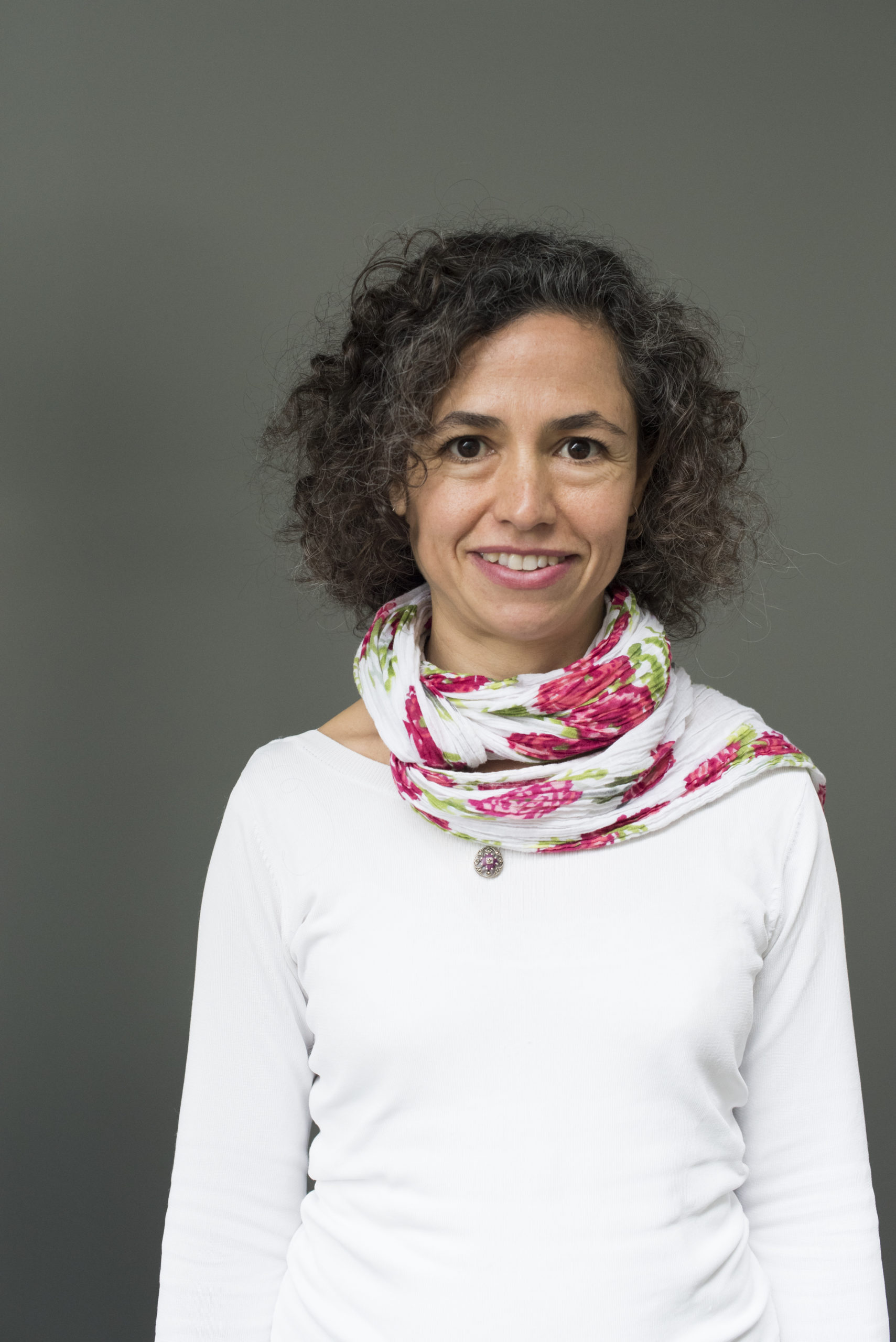
Laura Furlong
Scientific Director of MedBioInformatics Solutions & Senior Researcher at the Integrative Biomedical Informatics at GRIB (IMIM-UPF)
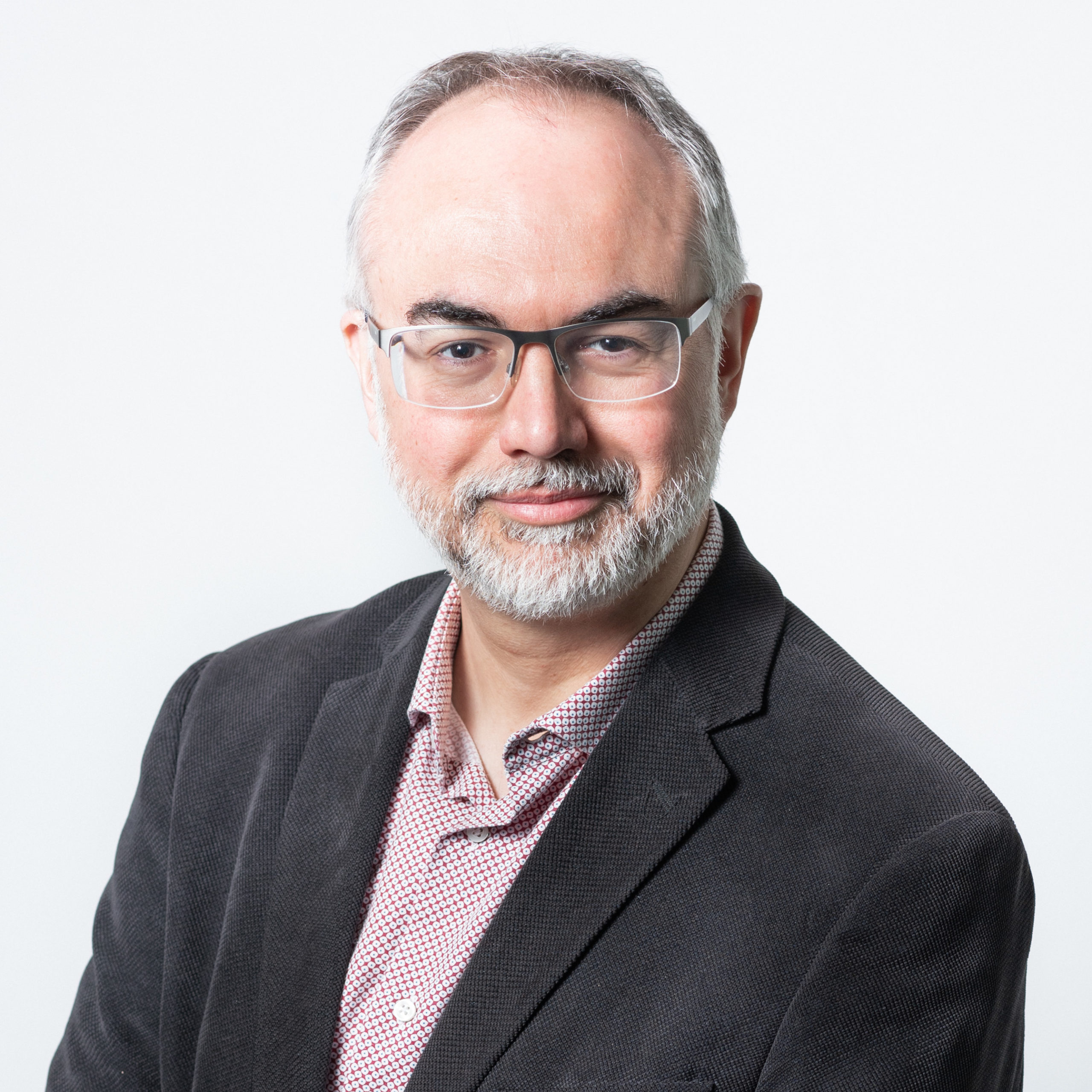
Arcadi Navarro
ICREA Research Professor at Institut de Biologia Evolutiva (CSIC-UPF)

Nataly Buslón
Postdoctoral researcher, Barcelona Supercomputing Center.
